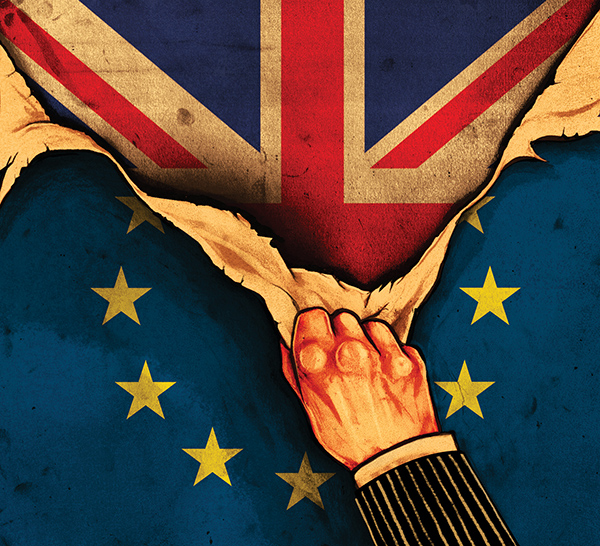The idea that the in-out referendum could be brought forward to next year has really focused the minds of many across the UK, and the pensions industry is starting to consider what the result could mean.
Prior to the election the possibility of an exit from the EU was accepted, but perhaps not fully appreciated, as it was buffered by both time and the likelihood (or so it seemed) that the Tories were on their way out of Downing Street.
Fast forward a month and it’s a different story. Bring forward the vote to 2016 and the picture comes into sharp relief.
In the latest Any Other Business piece, Tom Dines asks how schemes should be preparing for a possible Brexit.

Illustration by Ben Jennings
For defined benefit schemes there could be some advantages, such as reduced regulatory pressure from Europe over funding. But in the main, for all schemes the consensus is it best to just wait and see.
However, the Scottish referendum is a recent example of how perilous too much waiting can be.
Myriad analyses of how the UK pensions and financial systems would fare if the union was torn asunder were carried out in the run-up to the vote, but ‘solutions’ were few and far between even up to the point people were approaching the ballot box.
It was only thanks to a skin-of-the-teeth result that we never had to find out what that reality would entail (for now, at least).
On the plus side, a Brexit should have fewer complex implications for pensions than in Scotland’s case, as the nation’s system would not have to, in effect, undo itself.
But known knowns and any unintended consequences should start to take precedence in people’s minds over the coming months, and some in-depth analysis needs to, and will undoubtedly, be carried out on this subject.
Who knows, maybe the Bank of England will give us a heads up on their thinking?
Over the coming months, however, tax is likely to be taking centre stage for the pensions industry.
As well as further detail to come on the changes to pension tax relief, George Osborne is expected to lock down increases to income tax, VAT and national insurance, meaning the coffers will have to be filled by turning the screws elsewhere.
Maxine Kelly is editor at Pensions Expert. You can follow her on Twitter @MaxineEK and the team @pensions_expert.

























